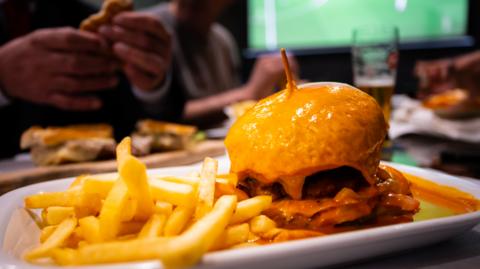Katharine Jenner, director of the Obesity Health Alliance, an umbrella group for health campaigners, had argued for brands to be included in the ban, and said she would like to see firms respond by making their products healthier.
"That would be the ideal thing, but they can get round it by just showing the brand and it's unclear what effect that would have, above and beyond what we've already got," she added.
"We are very supportive of [the restrictions] coming in as planned, but in future I think we'd like to see where loopholes could be closed".
Some food and drink brands are already creating advertising that does not feature their products, both on TV and on social media, irrespective of any ban.
Vic Banham, who runs the TikTok marketing agency Antler Social, says some of this may not even count as advertising.
"There is a lot of advertising going on that doesn't focus on the food itself, but they're still getting their name out there in a smart way," she said.
"I'd describe it as organic content, as opposed to advertising as we know it. They have an opportunity to reach a huge number of people of all ages and backgrounds."
A spokesperson for the Department of Health and Social Care said the ban would cover "unhealthy food products that are found to be excessively high in sugar, fat or salt".
"This advertising ban does not restrict brands from advertising, provided any products they feature meet the conditions set," they added.
